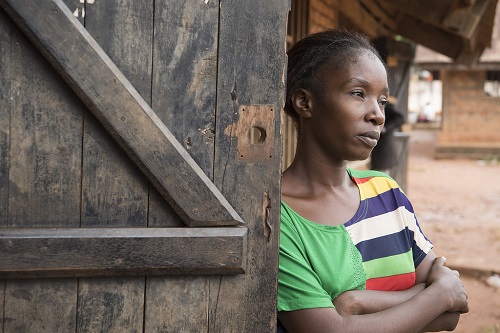UN photo
By
Cynthia Meru
Kenya has a web-based national referral directory of clinical, psychosocial, legal, security and coordination service providers to cater for the needs of sexual and gender based violence (SGBV) survivors and organizations responding to SGBV during emergency and non-emergency situations, by providing information on GBV service providers closer to their locality where they can go and seek help. Initiated in 2011 and operated by IRC, this website serves as support to help-seeking individuals and information hub to both survivors and referral agencies. KDHS 2014 indicates 38% of ever-married women have experienced physical violence compared to 9% of ever-married men. 14% of ever-married women have ever experienced sexual violence compared to 4% of ever-married men. 41% of ever-married women have ever experienced physical or sexual violence, while 11% of ever-married men have ever experience either form of violence from a partner. One-in-three Kenyan females and one-in-five Kenyan males has experienced an episode of sexual violence before attaining the age of 18 (Kenya VAC 2010).
How do we move to 0% percentage? First, I propose community capacity building training on comprehensive sexual education and GBV to village elders, religious leaders, chiefs and teachers. This will help them understand what they are protecting and how best to uphold the dignity of survivors. Being that they are opinion leaders in their community, they have masses and when they stand strongly against GBV, more awareness on GBV will be raised in places of worship and community meetings. These leaders will have the right information to give help and guidance on gender based violence matters. This will also promote information sharing and people involvement in the fight against GBV.
Secondly, Kenya has among the highest youth globally. The county governments could tap the youth by encouraging PEER-to-PEER education advocacy through the creation of award systems, exchange programs, activities where youths either online or offline come together share information and stories through photography, articles, art, music and poetry. This will encourage the sharing of information through word of mouth and social media platforms, therefore ensuring the right information reaches the right audience at the right time.
Lastly, the national government should reinforce the laws in persecuting the perpetrators of gender violence. Kenya has laws against GBV such as, Sexual Offenses Act 2006, Children’s Act 2001, and Penal Code cap 63. Kenya recognizes and upholds the Convention on Elimination of Discrimination Against Women (CEDAW) 1979, the United Nations Declaration on the Elimination of Violence Against Women (DEVAN) 1993 and the African Charter on Human and Peoples’ Right on the Rights of Women in Africa (Maputo Protocol 2003) among others. Therefore, it is high time Kenyans see the perpetrators of this inhumane act publicly persecuted and convicted. This will strengthen the trust Kenyans have in the judicial systems.
In the spirit of Kenyans to Kenyans, we all need to stand up and speak and condemn this violation of human dignity. Zero eradication of GBV will play a role in poverty eradication, economic empowerment and the realization of gender equality.
Cynthia Meru
I am a freelance writer and photographer and believe that everyone has the potential to do great things, all one needs is an opportunity. Favourite Quote: “Don’t be afraid of getting wet, if you want to be a swimmer.”



No Comments Yet!
You can be first to comment this post!